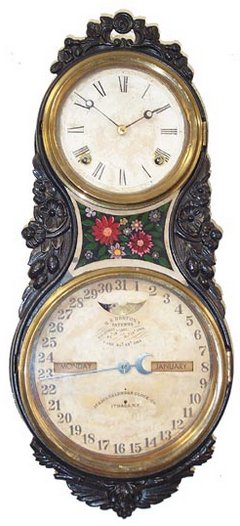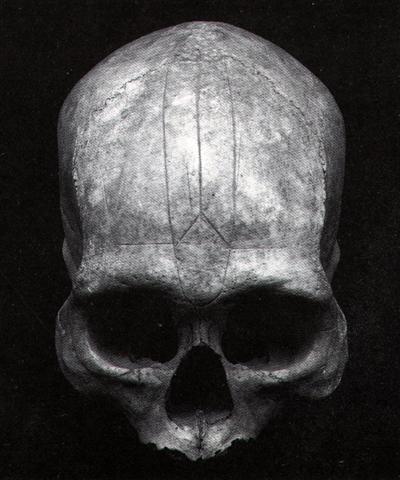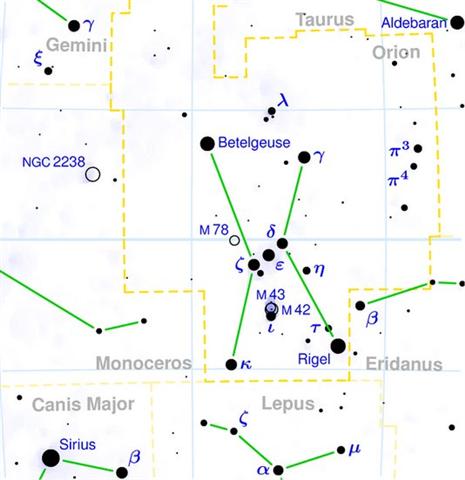Beginning with "October 20
(293) and counting 13 days ahead we will
reach Heka:
 |
 |
 |
 |
|
Ga1-7 |
Ga1-8 |
Ga1-9 |
Ga1-10 |
|
no star
listed (71) |
no star
listed (72) |
Hassaleh
(73.6) |
Almaaz
(74.7),
Haedus I
(74.8) |
|
May 31 (151) |
June 1 |
2 |
3 (520) |
|
'May 4 (490) |
5 (125) |
6 |
7 |
|
"April 20
(*30) |
21 (111) |
22 (478) |
23 |
|
Tail-6 |
ι Ophiuchi
(255.3),
Grafias
(255.4) |
κ Ophiuchi
(256.2), ζ
Arae
(256.5), ε
Arae
(256.8),
Cujam
(256.9) |
no star
listed (257) |
|
Wei,
η Arae
(254.3),
DENEBAKRAB
(254.7) |
|
November 30
(700) |
December 1
(*255) |
2 (336) |
3 |
|
'November 3
(673) |
4 (308) |
5 |
6 (*230) |
|
"October 20
(293) |
21 |
22 |
23 (*216) |
 |
 |
 |
 |
 |
|
Ga1-15 |
Ga1-16 |
Ga1-17 |
Ga1-18 |
Ga1-19 |
|
λ Leporis (79.6)
Arcturus
|
Bellatrix, Saif
al Jabbar
(80.7), Elnath
(80.9) |
Nihal (81.7) |
Mintaka (82.4),
ε Columbae
(82.6) |
Al Hak'ah-3 /
Mrigashīrsha-5 /
Turtle-20 |
|
Arneb (83.0,
φ¹ Orionis
(83.1),
HEKA
(83.2), Hatysa
(83.5),
φ² Orionis
(83.6), Alnilam
(83.7) |
|
June 8 |
9 (160) |
10 (*81) |
11 (528) |
12 |
|
'May 12 |
13 (499) |
14 (*54) |
15 |
16 (136) |
|
"April 28 |
29 (485) |
30 (120) |
"May 1 (*407) |
2 (*42) |
|
ξ Ophiuchi
(262.2), θ
Ophiuchi, ν
Serpentis, ζ, ι
Apodis (262.4),
ι Arae (262.8),
ρ Herculis
(262.9) |
β, γ Arae
(263.3), κ Arae
(263.5), σ
Ophiuchi (263.6) |
Lesath, δ Arae
(264.7), Choo
(264.9) |
Alwaid, Maasym
(265.1),
Shaula
(265.3), Kuma
(265.6), σ Arae
(265.9)
Hamal
|
Ras Alhague
(266.1),
Sargas
(266.3), μ
Ophiuchi, π Arae
(266.5), Nan Hae
(266.6), ι
Herculis (266.7) |
|
December 8 |
9 |
10 (710) |
11 (*265) |
12 (346) |
|
'November 11 |
12 (*236) |
13 |
14 (684) |
15 (319) |
|
"October 28 |
29 (668) |
30 (303) |
31 (*590) |
"Nov 1 (*225) |
|
If these 13 days
were ruled by Heka, then we maybe could
expect also the following 13 days to
be ruled by some
great star. However, there
could also be an 'interregnum' of
shorter time:
|
ARIES: |
|
1 |
Ashvini |
β and γ Arietis |
Horse's head |
27 = 8
+ 9 |
|
wife of the Ashvins |
Sheratan and Mesarthim |
April 17 (107) |
|
2 |
Bharani |
35, 39, and 41 Arietis |
Yoni, the female organ of
reproduction |
41 = 27
+ 14 |
|
the bearer |
Musca Borealis |
May 1 (121) |
|
TAURUS: |
|
3 |
Krittikā |
M 45 Tauri |
Knife or spear |
55 = 41
+ 14 |
|
the nurses of Kārttikeya |
The Pleiades |
May 15 (135) |
|
4 |
Rohini |
α Tauri |
Cart or chariot, temple,
banyan tree |
68 = 55
+ 13 |
|
the red one |
Aldebaran |
May 28 (148) |
|
ORION: |
|
5 |
Mrigashīrsha |
λ, φ¹, and φ² Orionis |
Stag's head |
83 = 68
+ 15 |
|
the deer's head |
Heka |
June 12 (163) |
|
6 |
Ardra |
α Orionis |
Teardrop, diamond,
a
human head |
88 = 83
+ 5 |
|
the moist one |
Betelgeuze |
June 17 (168) |
The Hindu system had
5 following nights to Betelgeuze (α
Orionis) whereas the Chinese
had only 1 day from Heka (λ
Orionis) to Alnitak (ζ
Orionis). The Arabs
jumped 10 days from Heka directly across the Milky Way river
over to
Gemini.
The creator of the G
text seems to have followed the
Chinese pattern with Alnitak (Ana-iva)
as a stepping stone just beyond
Heka. Then came Betelgeuze (Ana-varu)
in the center of a 5-glyph
sequence - which stretched to the
solstice:
 |
 |
|
Ga1-20 |
Ga1-21 |
|
Three
Stars-21
/
ANA-IVA |
γ Leporis
(85.9)
Yang Mun |
|
Heavenly
Gate, ν
Columbae
(84.0),
ALNITAK,
PHAKT
(Phaet)
(84.7) |
|
June 13
(530) |
14 (165) |
|
'May 17 (530
- 27 - 366 =
137) |
18 (*85 - 27
= *58) |
|
"May 2 (*43) |
3 (490) |
|
λ Arae
(267.1),
Girtab,
ο Serpentis
(267.6) |
Kelb Alrai,
μ Arae
(268.1), Kew
Ho (268.6),
η Pavonis
(268.7),
Apollyon
(268.9) |
|
December 13
(713) |
14 (348) |
|
'November 16
(320) |
17 (*268 -
27 = *241) |
|
"November 2
(*226) |
3 (673) |
 |
 |
 |
 |
 |
|
Ga1-22 |
Ga1-23 |
Ga1-24 |
Ga1-25 |
Ga1-26 |
|
μ Columbae
(86.1),
Saiph
(86.5), ζ
Leporis
(86.6) |
Wezn (87.6),
δ Leporis
(87.7), Tze
(87.9) |
Ardra-6
/
ANA-VARU |
η Leporis
(89.0),
Praja-pāti,
Menkalinan,
Mahashim,
and γ
Columbae
(89.3), η
Columbae
(89.7) |
μ Orionis
(90.3), χ²
Orionis
(90.5) |
|
BETELGEUZE
(88.3), ξ
Columbae
(88.5), σ
Columbae
(88.7)
Zuben
Elgenubi |
|
June 15 |
16 |
17 (168) |
18 (535) |
19 (536 - 446 = *90) |
|
'May 19 |
20 (140) |
21 |
22 (508) |
23 (509 - 446 = *63) |
|
"May 4 (*45) |
5 (126) |
6 (493) |
7 |
8 |
|
Muliphen
(269.0),
Basanismus
(269.5),
Pherkard
(269.9) |
Ptolemy
Cluster
(270.5) |
Rukbalgethi
Genubi
(271.1), ξ
Herculis
(271.5),
Etamin, ν
Herculis
(271.7), ν
Ophiuchi
(271.8) |
ζ Serpentis
(272.4), τ
Ophiuchi
(272.9) |
Winnowing
Basket-7 |
|
18h (273.4) |
|
NASH
(273.7), θ
Arae (273.8) |
|
December 15 |
16 (350) |
17 |
18 (718) |
19 (*273) |
|
'November 18 |
19 |
20 (324) |
21 (691) |
22 (*246) |
|
"November 3 |
4 (*229) |
5 (310) |
6 |
7 (678) |
 |
 |
|
Ga1-27 |
Ga1-28 |
|
6h (91.3)
|
ξ Orionis
(92.5) |
|
ν Orionis
(91.4), θ
Columbae
(91.5), π
Columbae
(91.6) |
|
June 20
(*91) |
solstice |
|
'May 24
(*64) |
25 (145) |
|
"May 9 (*50) |
10 (497) |
|
Zhōngshān
(274.0), π
Pavonis
(274.6) |
ι Pavonis
(275.1),
Polis
(275.9)
Menkar |
|
December 20
(354) |
solstice |
|
'November 23
(693) |
24 |
|
"November 8
(679) |
9 (314) |

 |
 |
 |
|
Ga1-29 |
Ga1-30 |
Ga2-1 |
|
Al
Han'ah-4 |
Furud
(94.9) |
Well-22 |
|
TEJAT
PRIOR
(93.4),
γ
Monocerotis
(93.5),
κ
Aurigae
(93.6),
κ
Columbae
(93.8) |
δ
Columbae
(95.2),
TEJAT
POSTERIOR,
Mirzam
(95.4),
Canopus
(95.6),
ε
Monocerotis
(95.7),
ψ1
Aurigae
(95.9) |
|
June 22
(173) |
23 (540) |
24 (175) |
|
'May 26
(512) |
27 (513) |
28 (*68) |
|
"May 11
(132) |
12 (*53) |
13 (500) |
|
η
Sagittarii
(276.9) |
Purva
Ashadha-20 |
|
KAUS
MEDIUS,
κ Lyrae
(277.5),
Tung Hae
(277.7) |
KAUS
AUSTRALIS
(278.3),
ξ
Pavonis
(278.4),
Al
Athfar
(278.6) |
|
December
22 (722) |
23
(*277) |
24 (724) |
|
'November
25 (329) |
26
(*250) |
27 (331) |
|
"November
10
(*235) |
11 (682) |
12
(*237) |
|
The last pair of
glyphs in the line could
explain what happened immediately
after the solstice. But we do
not know how to translate the
Arab Tejat:
"Tejat prior is from
Al Tahāyi, an anatomical
term of Arabia, by which it was
know in early days; a name also
applied to stars in the head of
Orion." (Allen)
The missing head
in Ga1-29 could refer to what
happened to Rahu. Light returned
from the opening at the neck of
his severed head:
... It is believed that this
immortal head occasionally
swallows the sun or the moon,
causing eclipses. Then, the sun
or moon passes through the
opening at the neck, ending the
eclipse
...
Live coals (garahu)
from an old fire were used for
igniting a new fire:
... Up to the present time,
fertility spells for fowls have
played an important role.
Especially effective were the
so-called 'chicken skulls' (puoko
moa) - that is, the skulls
of dead chiefs, often marked by
incisions, that were considered
a source of mana. Their
task is explained as follows:
'The skulls of the chiefs are
for the chicken, so that
thousands may be born' (te
puoko ariki mo te moa, mo topa o
te piere) ...As long as the
source of mana is kept in the
house, the hens are impregnated
(he rei te moa i te uha),
they lay eggs (he ne'ine'i te
uha i te mamari), and the
chicks are hatched (he topa
te maanga). After a period
of time, the beneficial skull
has to be removed, because
otherwise the hens become
exhausted from laying eggs.

|











